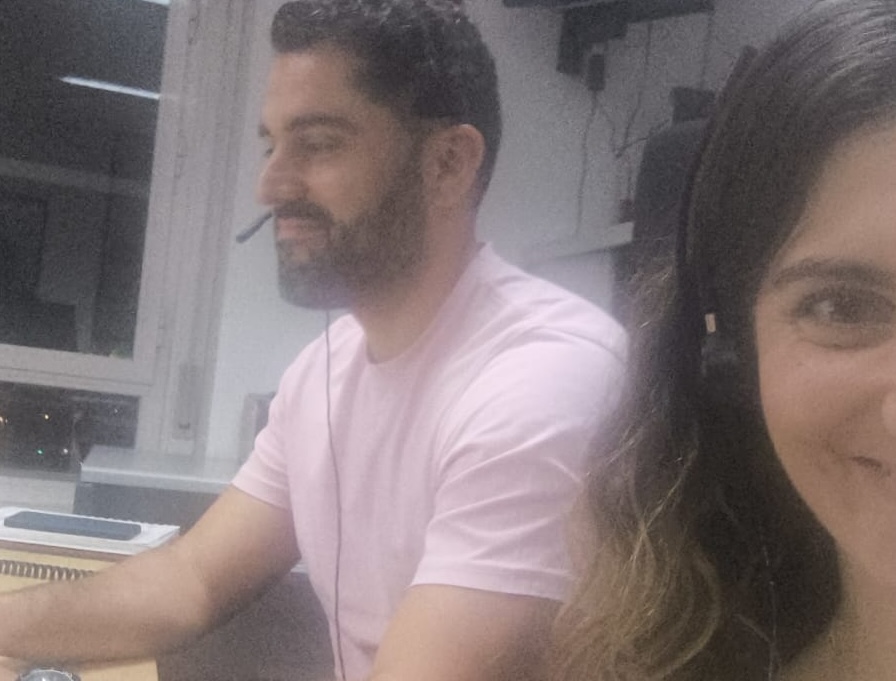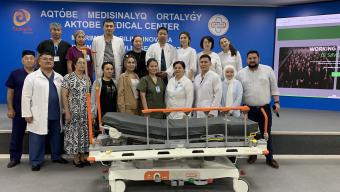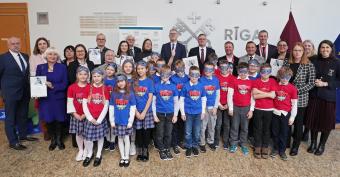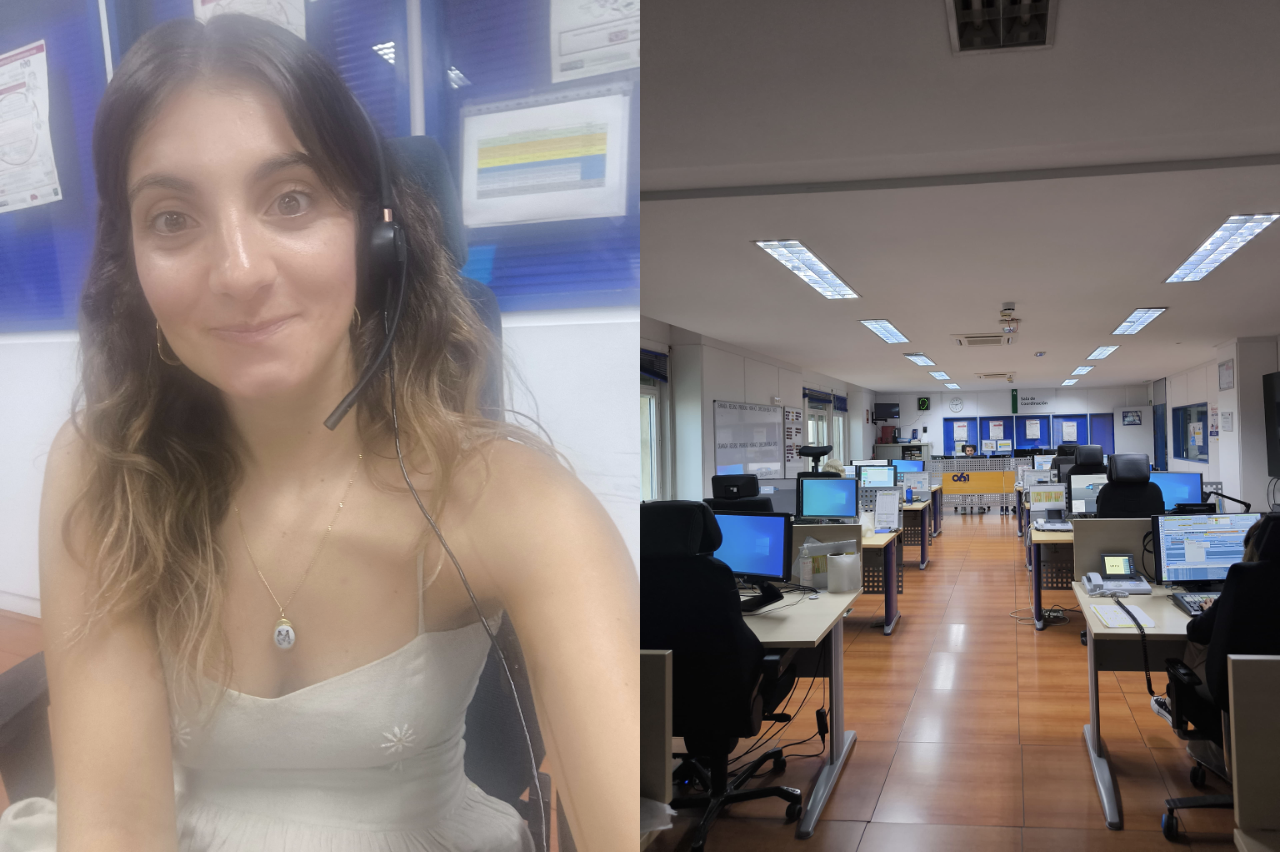
“THERE’S a before and after in Almería, a region famous for its exquisite beaches, clear ocean, delicious seafood and outstanding produce, but until recently not for its healthcare. The ‘after’ came in 2022 when the stroke hub in the region, Hospital Universitario Torrecárdenas, was awarded diamond status. This put Almería on the national map.
Almería is not a very big region, but it has many mountains, and remote rural areas that are hard to reach by road and that the tourists don’t see. Its population of around 750,000 fluctuates due to the influx of visitors in summer, but in terms of stroke care they are adequately catered for by one hub and two spoke hospitals. At the start of the 2024 Angels team leader Alicia Arjona and I decided that I would focus on converting Almería into an Angels Region because the motivation was already there.
Implementation of the FAST Heroes campaign was the first box I ticked. A pilot project undertaken some time before had not had much impact but we had a breakthrough when the RES-Q coordinator for the region, Joaquín García, had the brilliant idea of working with the school nurses who are deployed throughout the education system. A meeting with a school nurse coordinator was followed by another where the ministers of education and health were also present. Thanks to their support, more than 50 school nurses attended our FAST Heroes presentation and by July the program had been implemented at 22 schools.
The bright spot in the region was undoubtedly Hospital Universitario Torrecárdenas where Joaquín is the chief of nurses in the stroke unit. Alicia had been working with them since 2019 and they had come a long way, including implementing all the key priority actions to reduce door-to- treatment times. Soon after becoming the first hospital in the region to achieve diamond status, they also became the first hospital in Spain to achieve four consecutive diamond awards.
About the two smaller hospitals, Hospital Universitario Poniente and Hospital La Inmaculada, I knew very little except that they had both participated in an Angels Day in 2022 and were looking forward to working with us. I followed the same consultancy process at both hospitals, holding multi-disciplinary meetings and enrolling them with RES-Q so they and I could analyze the pathway and evaluate their performance. The simulation training at Hospital Poniente was my first simulation ever, and it went pretty well. Right away, we also agreed plans to implement key priority actions and improve post-acute care at both hospitals.
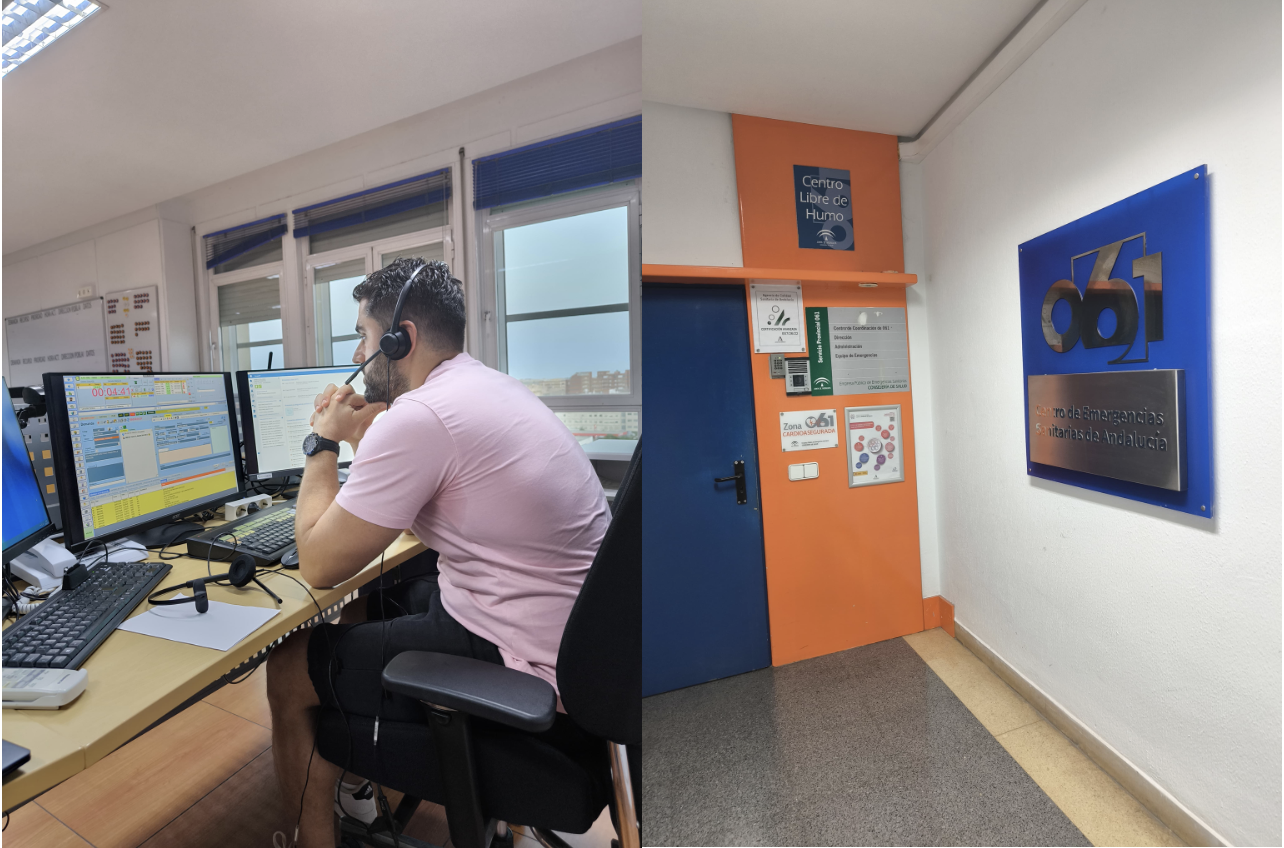
Hospital La Inmaculada is situated in the north, which is the only part of the region not covered by the region’s EMS, the Centro De Emergencias Sanitarias (CES) 061 Almería. Primary care physicians attend patients in medicalized vehicles up to an imaginary line called km 21, where they are transferred into the care of the CES and transported to the hub. For this reason we are also organizing a training event involving doctors from La Inmaculada, the CES andprimary care. The RACE scale, which is a simple and rapid neurological scale to detect acute stroke patients with a high probability of having a large vessel occlusion, is also being implemented in the north.
Aside from this somewhat unique situation, the CES works really well. Gabriel Navarro Lorenzo is one of the main neurology coordinators. He usually shares this responsibility with his colleague Rocío Escamilla, who has been on maternity leave. Gabriel is really friendly and easy to talk to; he is always willing to share his experience and expertise, as well as learn and collaborate with Angels.
After getting to know Gabriel I asked him if I could visit the coordination center in Almería. I had previously visited a coordination center in Córdoba with Dr Francisco Aranda. I liked it so much I wanted to get to know others, and as a result of the relationship I was developing with Gabriel this opportunity came up.
My request elicited some jokes about doing 12-hour shifts like the doctors who work as coordinators do, but I actually thought it was a fantastic idea. Not a 12-hour shift, perhaps, but something more than a casual observation. It would be an opportunity to learn more about emergency resources in Almería and at the same time I could improve my relationship with Gabriel.
I wanted to get a clearer idea of how the system worked; how they prioritized the calls, the system they used to filter the calls, the management of the resources they have available, and hopefully see for myself how both the coordination center and the ambulance doctors react in a case of stroke.
I don’t think Gabriel believed me at first when I asked if I could come to the coordination center for an observation. He laughed and said, “Are you reaaaally coming?” He may also have been a bit reluctant given how busy and chaotic these shifts can be.
It turned out that I was going to be in Almería for some other meetings the week Gabriel told me he had a night shift in the coordination center. I thought this would be a perfect opportunity for an observation as they are normally less busy at night. I did not want to disturb the people working there, but I wanted to be able to talk to him and ask him questions, so an evening observation seemed like the best time.
I arrived at the center at 10 pm on Wednesday 16 July. The coordination room is rather a long room with rows of tables where the teleoperators are stationed behind computers. These smaller tables face a bigger table where the doctor (or doctors during daytime) sits in order to facilitate the communication between them.
Among the things that struck me was the way they administered the available resources, the communication with different parts of Andalusia, and the design of the software that helps filter information and categorize situations.
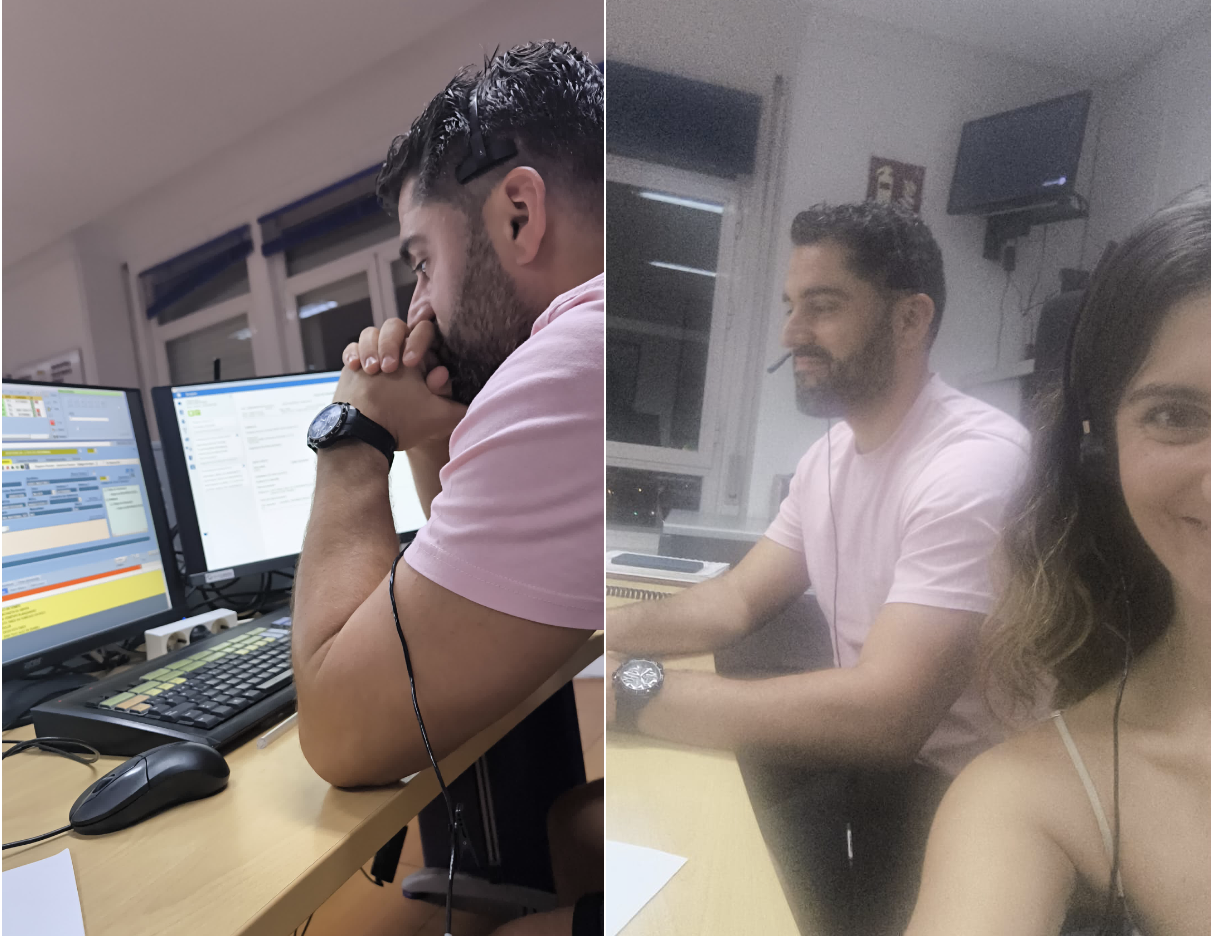
Incoming calls are answered by a teleoperator. They have some general questions to ask and, depending on the answers, the software directs them to more specific questions to identify the suspected pathology. The calls are then transferred to the doctor in order to confirm and decide the resource that will be used if necessary. Any doubts or problems that the teleoperators may face during the calls are also referred to the doctor.
The thing that surprised me the most was the good communication and good relationship between those in the coordination center and those in the ambulances, which allows for great teamwork. However, there was another thing that surprised me a lot, not in the best way, and that is that people call the emergency services for literally anything, even the most trivial thing you can imagine.
I spoke mostly to Gabriel as I was sitting next to him and the teleoperators were dealing with calls non-stop. I asked a lot of general questions about the software, the communication with the ambulances, the police, and other parts of Andalusia, and the overall administration of the emergency resources. More specifically I asked how the software worked to filter a stroke patient, the general protocol they followed in both the coordination center and the ambulances, how they chose the resource and the hospital, and where there might be areas for improvement.
To show my appreciation for the warm welcome, I got a pizza for everyone to share for dinner, and left the center around 1.30 am.
From a consultant’s point of view it was useful to really gain an understanding of how the system works, both inside and outside the coordination center. I also think that Gabriel and I enjoyed sharing the time there. I think I used my time wisely by asking many questions and he explained many things without even being asked. The environment was more relaxed than a normal meeting and I believe that showing an interest in their work and being present improved our relationship in a way a meeting could never have done.
To consolidate my work in the region, it was important after working with each hospital separately to get them all together in order to create momentum. This opportunity came when the steering committee in the region invited me to help them organize their annual stroke day, which gave me access to all the regional key opinion leaders at the same time, on the same day, in the same room.
I introduced the Angels Region strategy, of course, and I would say there was a contamination of motivation especially when we talked about the Angels Awards. Of course all the hospitals wanted one and we talked about what the next steps could be; what we could do, and how we could help each other.
When the results were published for quarter two it was confirmed that Hospital Poniente had won a platinum award and La Inmaculata their first gold. Torrecárdenas collected their seventh diamond and CES 061 Almería their third platinum award. With targets already met for hospital coverage and FAST Heroes implementation, Almería became one of the first regions in Europe to be officially recognized as a very proud Angels Region."
